Netflix’s "Enola Holmes" Excuses Violent Feminist Anarchy
Netflix’s new original movie, “Enola Holmes,” showcases yet another attempt at a feisty, feminist heroine who forges her own path. However, this film also advocates a far more dangerous idea than just your average girl-power flick.
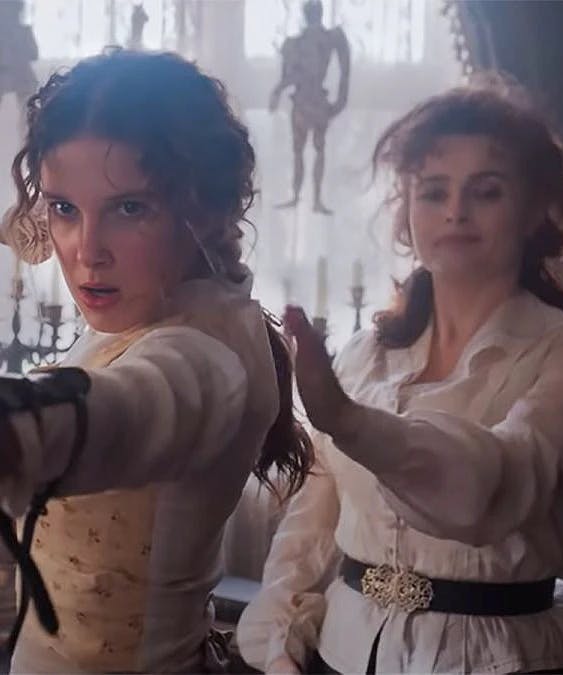
As you can probably guess from its title, Enola Holmes is about the younger sister of the famous detective, Sherlock Holmes. Starring Stranger Things actress Millie Bobby Brown, Enola has lived a sheltered life in her manor house, raised by her forward-thinking mother in 19th century England. Enola is a progressive young lady herself, who, rather than learning how to crochet, is skilled in martial arts, is well-read, and, like her detective big brother, is gifted with deductive reasoning skills.
Sherlock, who?
This tale, however, is hardly about Enola’s sleuthing brother. Instead, it focuses on Enola’s and her mom, Eudoria’s, lives. They do everything together, and at first, it was refreshing to see a single mom take on the not-easy task of homeschooling and raising her daughter.
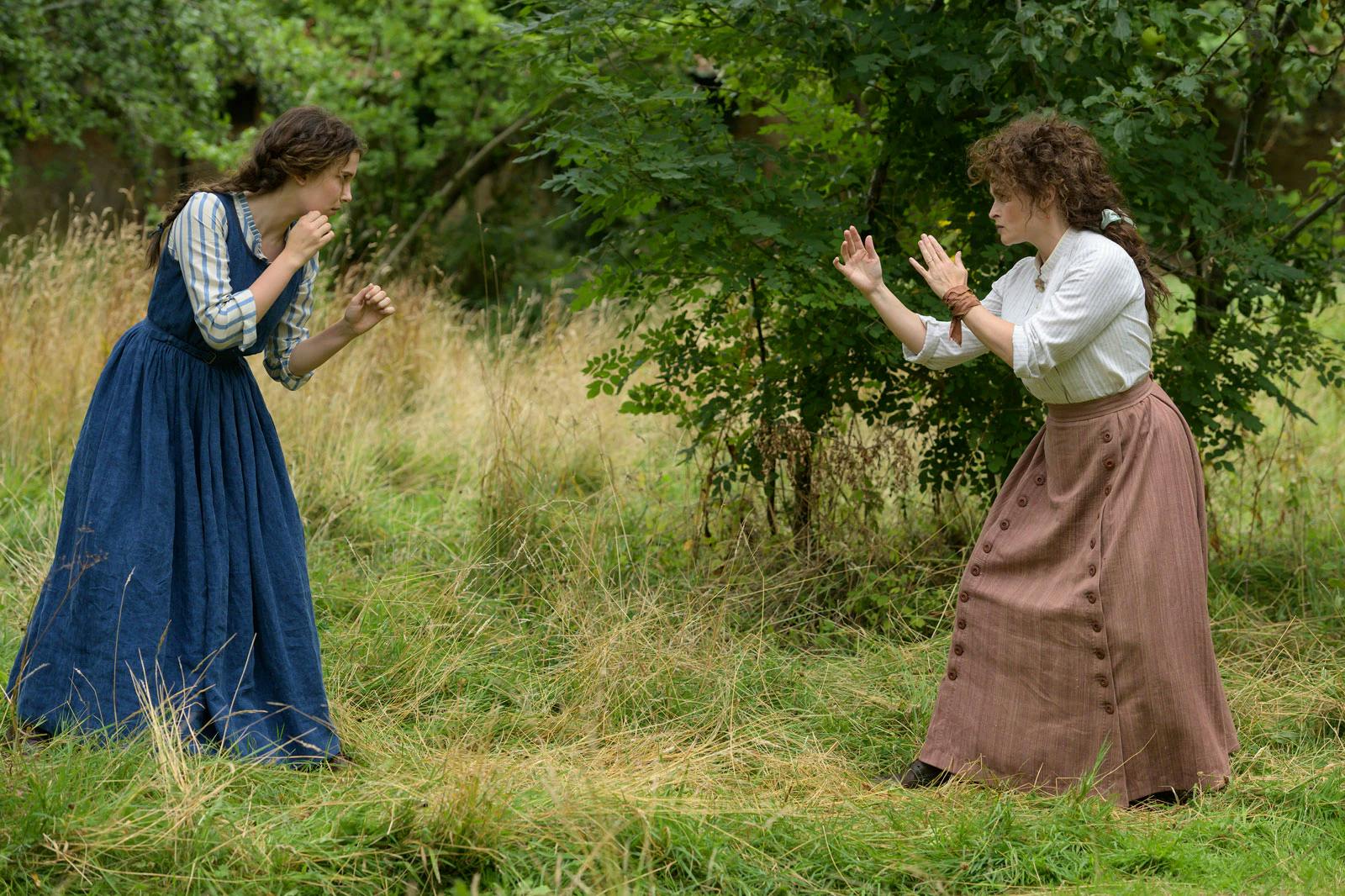
Because of their close relationship with each other, it comes as a shock to Enola when she wakes up on her 16th birthday to find her mother has mysteriously vanished. The resourceful Enola, determined to find her, sets out to solve the mystery and goes on the adventure of a lifetime. As Enola makes some startling discoveries about why her beloved mom disappeared, the audience makes some as well, and they’re quite disconcerting.
Girl-Power Gone Wild
Spoilers ahead!
The film appears to be your typical girl-power adventure where the female kicks some butt and defies society’s standards for a woman. This is nothing new; writers like Jane Austen and more recent films like 2017’s Wonder Woman and the animated classic, Mulan, showcase extraordinary women who celebrate feminism the right way.
Enola Holmes, however, proves problematic in its subtle justification for extremism. Halfway through the film, the precocious Enola discovers that her mom is planning a radical, feminist revolt. Enola follows a clue to a back-alley warehouse where she finds bombs, gun powder, and plans to blow up designated (and crowded) London streets to fight back against the no-good patriarchy and to forward the suffragette cause. Near the end of the movie, Enola’s mother justifies her violent ideas, stating, “You need to make some noise if you want to be heard.”
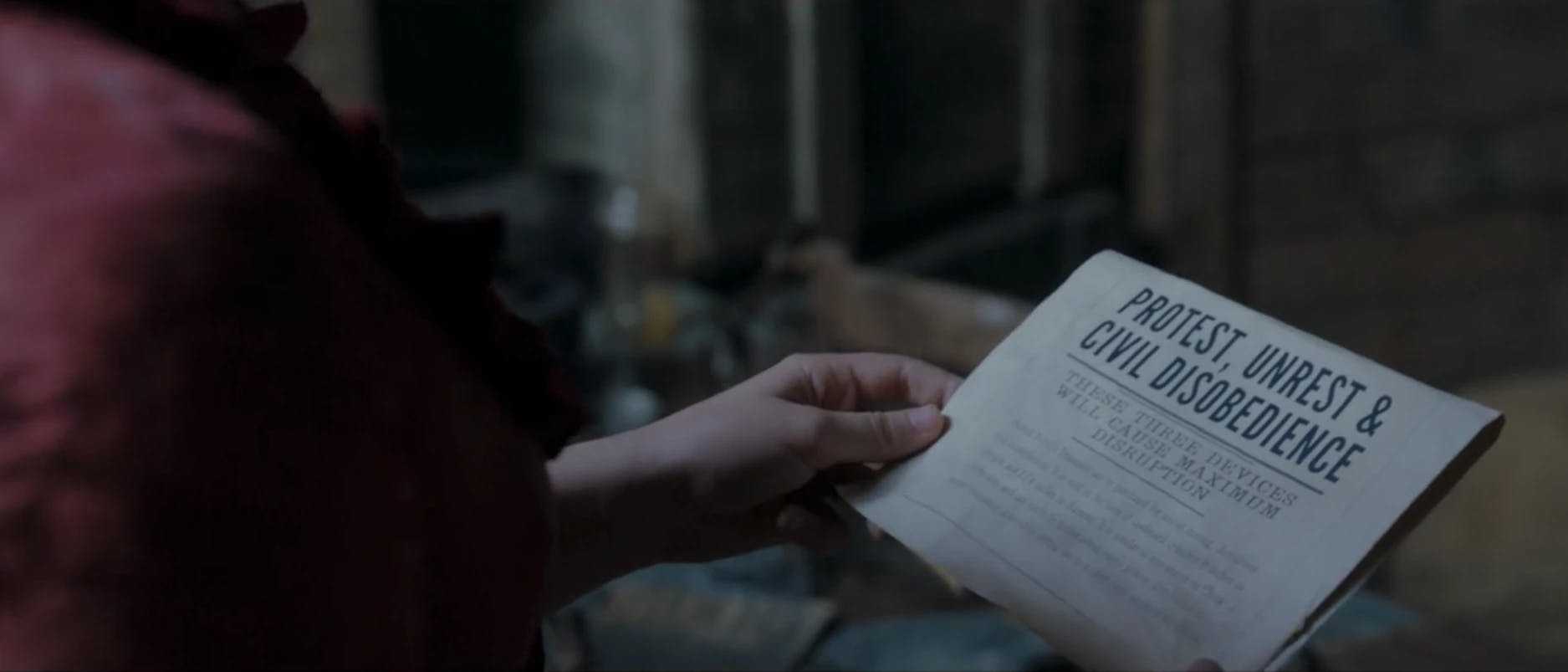
That makes sense because... oppression, right folks?
Mother Knows Best?
Two minutes. That’s all it took for Enola’s mom to justify why she abandoned her daughter and why she’s doing what she’s doing. The movie ended without any explanation of the horrific realities that the mom and her fellow radical suffragettes could have caused if they acted on their plans. This begs the question: Is taking extreme measures the only way for a female’s voice to be heard? Is it always acceptable, no matter the cost? Enola Holmes seems to imply this by excusing the mother’s behavior and elevating her to an empowering role model.
Is taking extreme measures the only way for a female’s voice to be heard?
One can claim that Enola’s mom was rightfully fighting for a reason. Being a woman in Victorian England was challenging, and as a critic commented about the film, it was “a time period when a woman’s individualism wasn’t widely accepted. Nor were her demands for equal rights.”
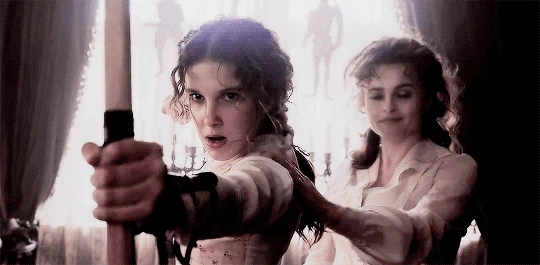
A subplot of the movie follows a young count, who befriends Enola, and ends up being a key player in passing a reform bill to help women and the powerless. Arguably, Enola’s mom and her fellow suffragettes shouldn’t be to blame for wanting this bill to pass and for their radical actions to enforce change. Aren’t they fighting for women after all?
Violence Doesn’t Equal Empowerment
Although the movie doesn’t expand on this contrast, Enola helps the count stay alive when he’s hunted down by a vicious hitman. Enola protects a young man against violence, while her mom incites it.
That’s why I thought after Enola first discovers her mom’s radical plans that the movie was going to take a twist to where she was going to have to fight against her mom, the real villain of the film. I thought Enola, with her wits and determination, would show her mother that violence is not always the answer. This would have been an intriguing exploration into two contrary positions of pursuing peaceful change and pursuing extreme change, even when directed towards the same goal.
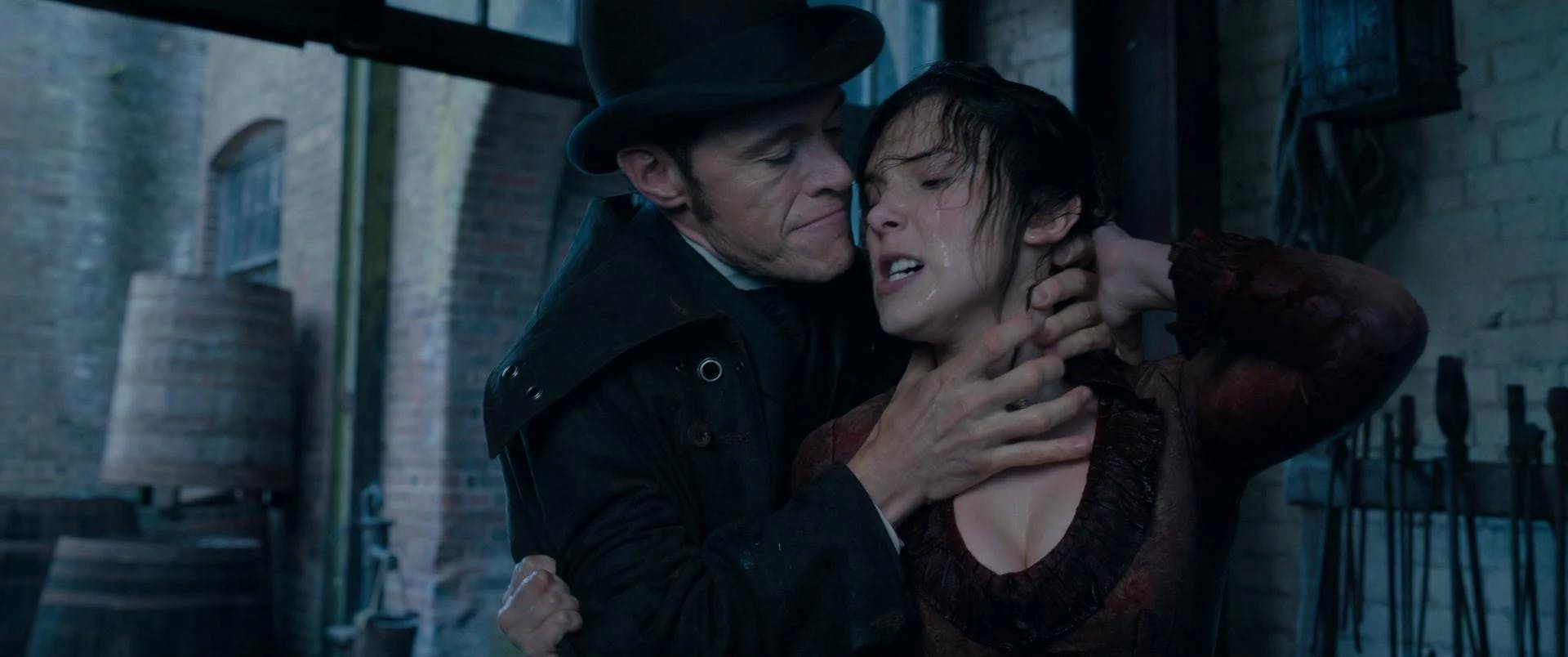
The mother should have been the villain, even a redeemable one, to remind women audiences that one doesn’t have to justify violence as a means of being heard. We can look to another movie starring Millie Bobby Brown as an example, 2019's Godzilla: King of the Monsters. In the film, Brown plays a young girl whose mother starts out as a respected scientist, but is revealed through the course of the film to be a Malthusian terrorist bent on helping the monsters destroy humans (and therefore save the planet from them.)
Brown's character starts out loyal to her mother, but loses faith as she realizes the true horror of her mother's plan. In the end, she helps convince her mother that what she is doing is wrong, and her mother sacrifices herself to save her daughter and the human race from the monsters she released.
Violence is a selfish method when trying to elicit change because the person committing it doesn’t care who gets hurt as long as their message is sent. What’s even more illogical is how Enola’s mother could justify her extremist actions as fighting for women, when innocent women themselves would have been murdered in an explosion of her own making.
Violence is a selfish method for eliciting change because it hurts others for the sake of the message.
Unfortunately, the movie, Enola, and her mom all excuse violent feminist anarchy as a means to an end, ignoring the innocent people who could have been injured or killed.
There has to be another way for a woman to be empowered and heard besides taking extreme, harmful measures. Real feminism should be about protecting others, not recklessly putting people’s lives in danger.
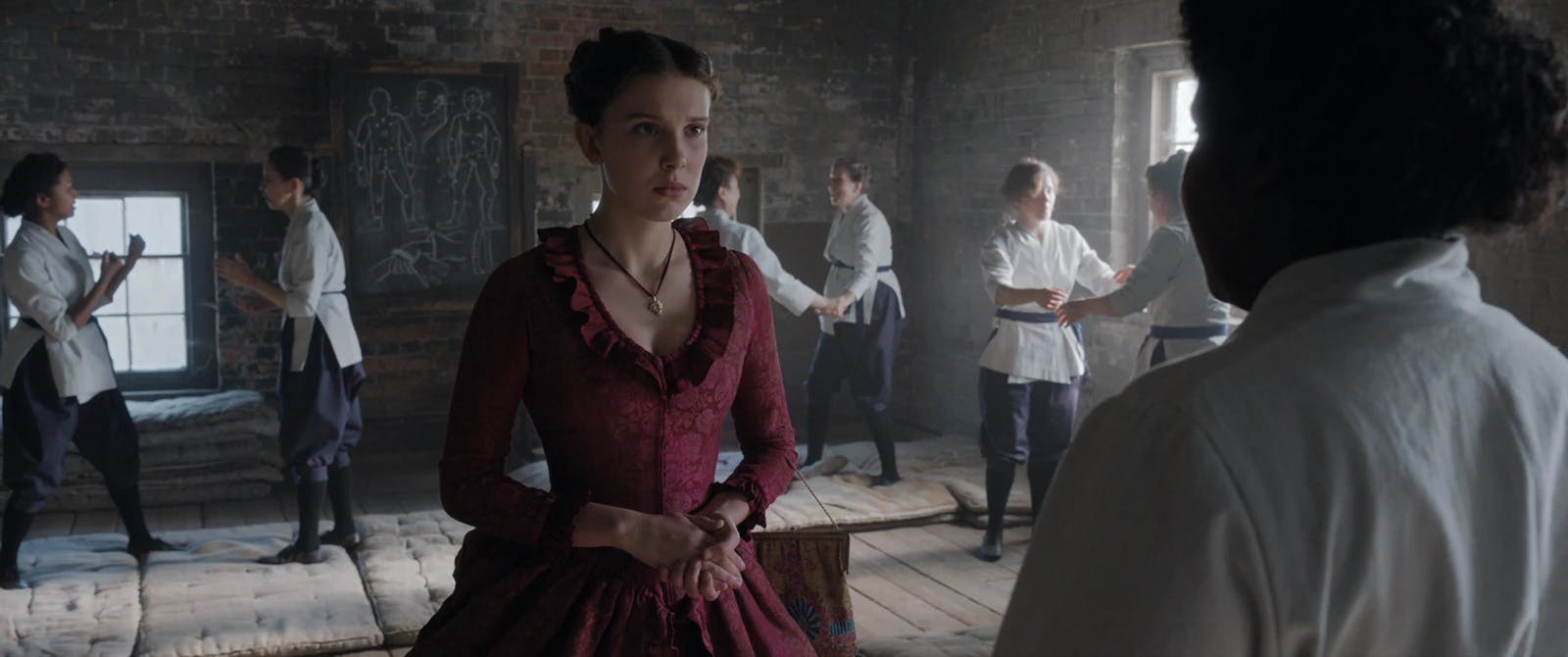
What a Feminist Should Fight For
What’s empowering is seeing a female hero fight against violence, forging a better path. As I mentioned previously, leading ladies like Wonder Woman and Mulan are the core of being a true feminist. True feminism is about how a woman treats and influences the people around her with the values she believes in. These strong female characters don’t incite or excuse extremist violence. They protect and defend all in need, never sacrificing their principles or someone else’s life, for the sake of being heard.
True feminism is about how a woman treats and influences the people around her through her values.
Enola Holmes gives the audience a poor example of what true feminism is about. It tries really hard to make Enola and her mom monumental role models for all women to aspire to, and they almost succeed with Enola. She’s an independent, caring, and intelligent female. With a proper plot and half as many woke jabs at the patriarchy, Enola could have been a remarkable character who doesn’t excuse her mom’s ways just because "women must be heard."
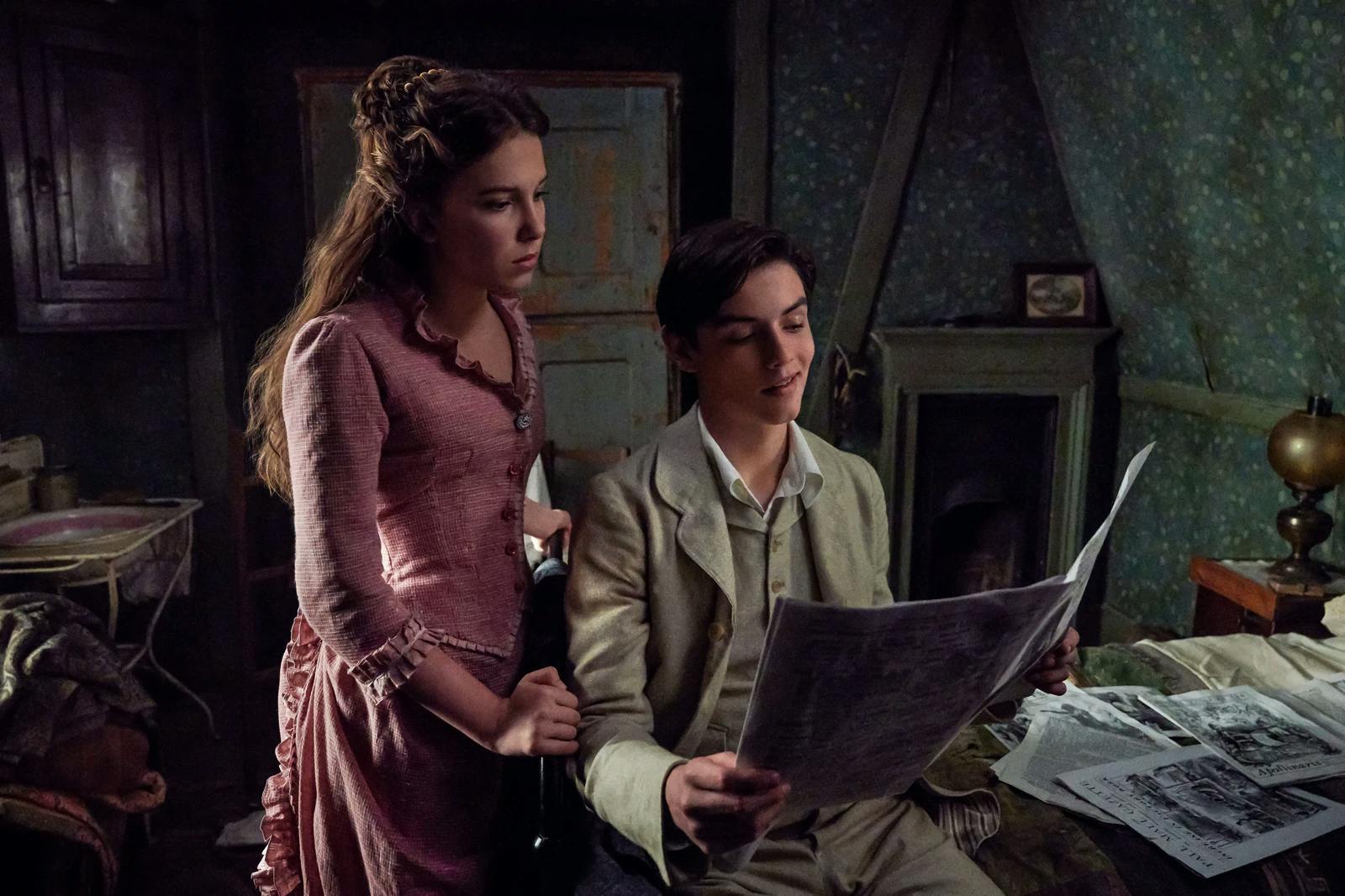
I’m not suggesting that the movie should’ve ignored what women went through and not have made the mom an extremist. The film should accurately depict these social issues, but not by promoting and excusing the mom’s terrorizing actions. What does it teach women when female characters justify the ideology that a woman should make noise and be heard through anarchist violence? Maybe a more profound idea the movie could’ve explored instead is how it’s one makes the noise that matters. A strong woman should fight to preserve all life and never resort to violence in the name of empowerment and feminism.
Closing Thoughts
My optimistic self really wanted Enola Holmes to be a good film. But, other than some nice moments, the justification of the mom’s actions leaves an overall bitter taste. Despite what the movie suggests to female audiences, using violence is neither heroic nor empowering when trying to be heard. A woman who treats and influences other people around her by valuing and protecting them is a woman worth listening to.